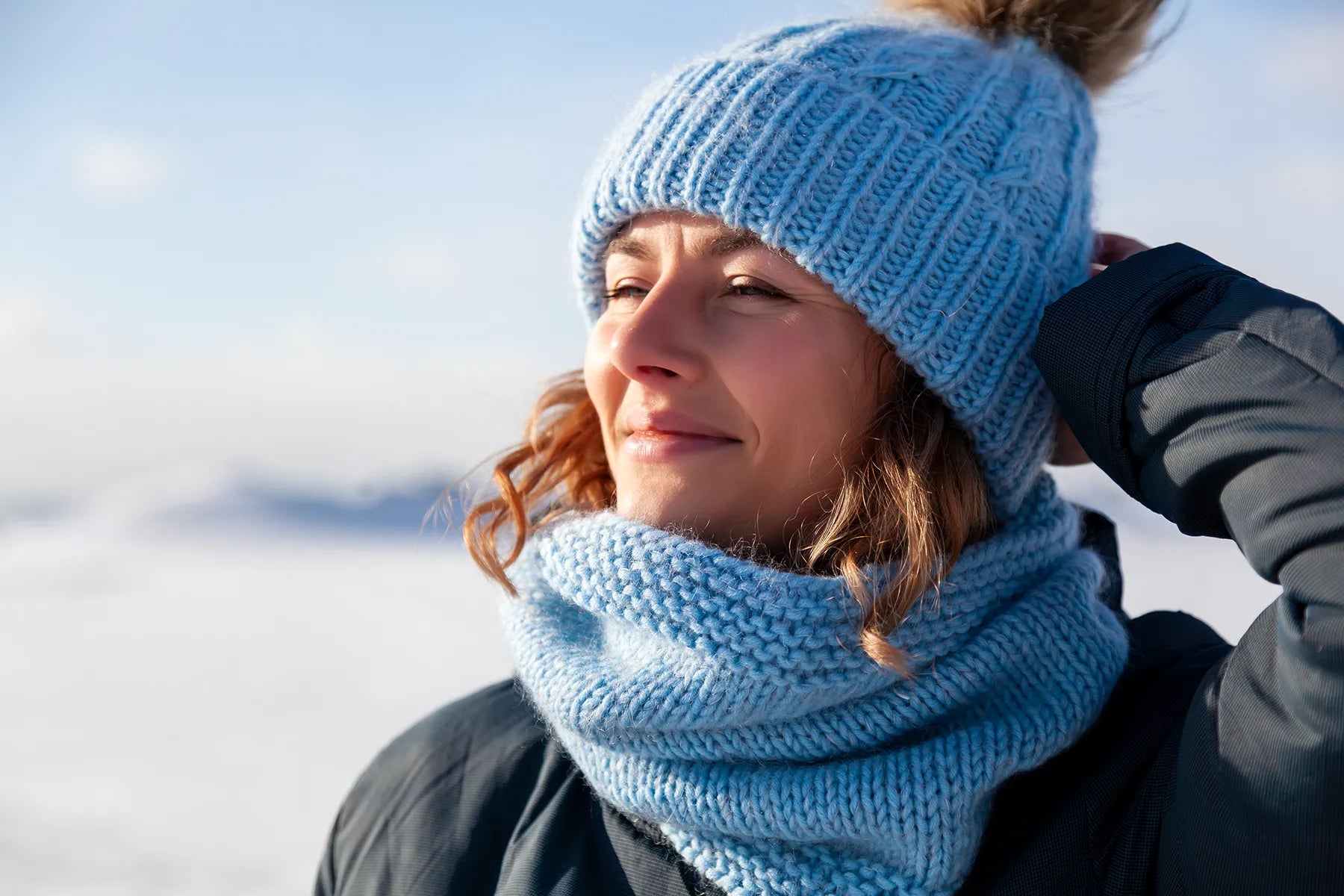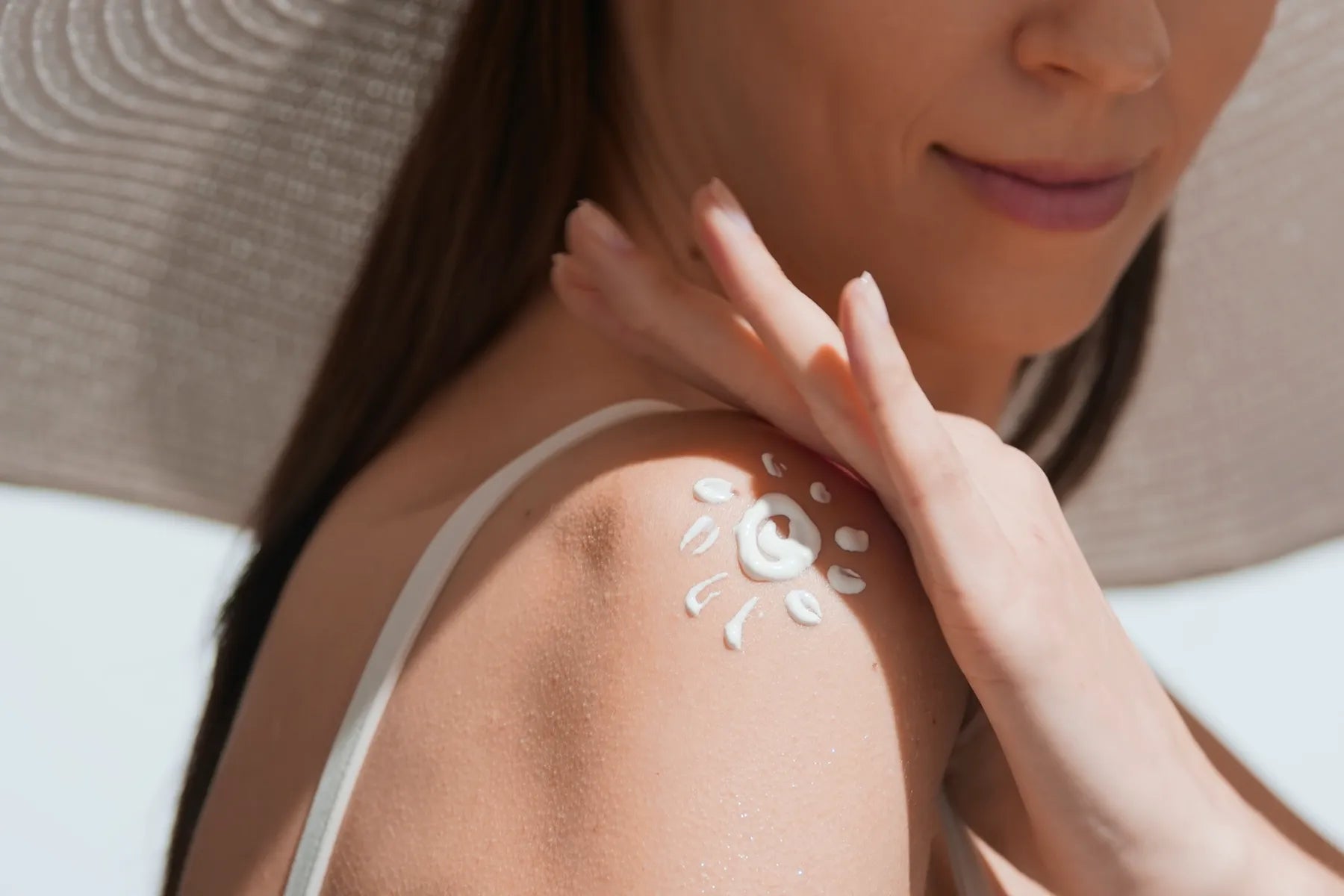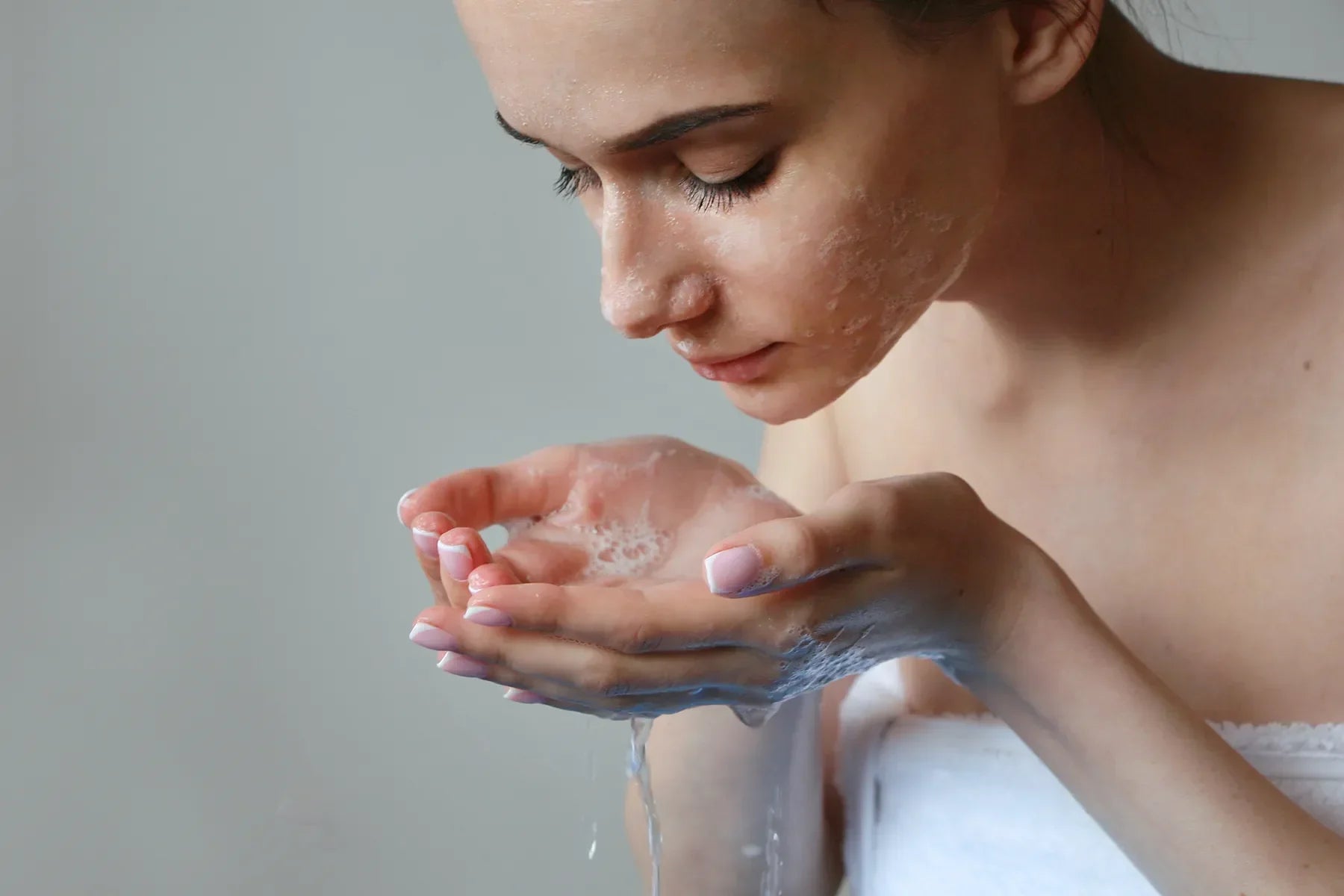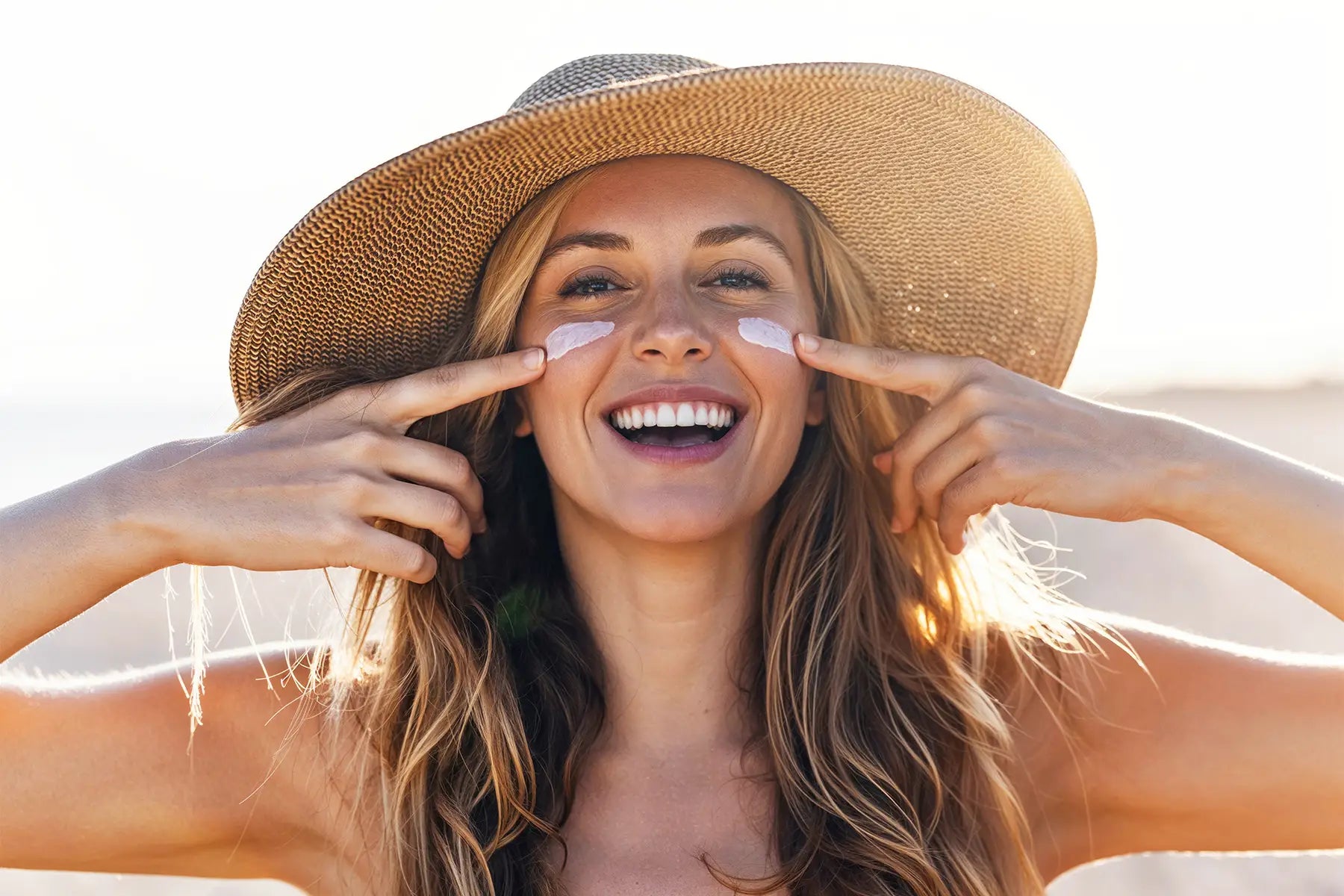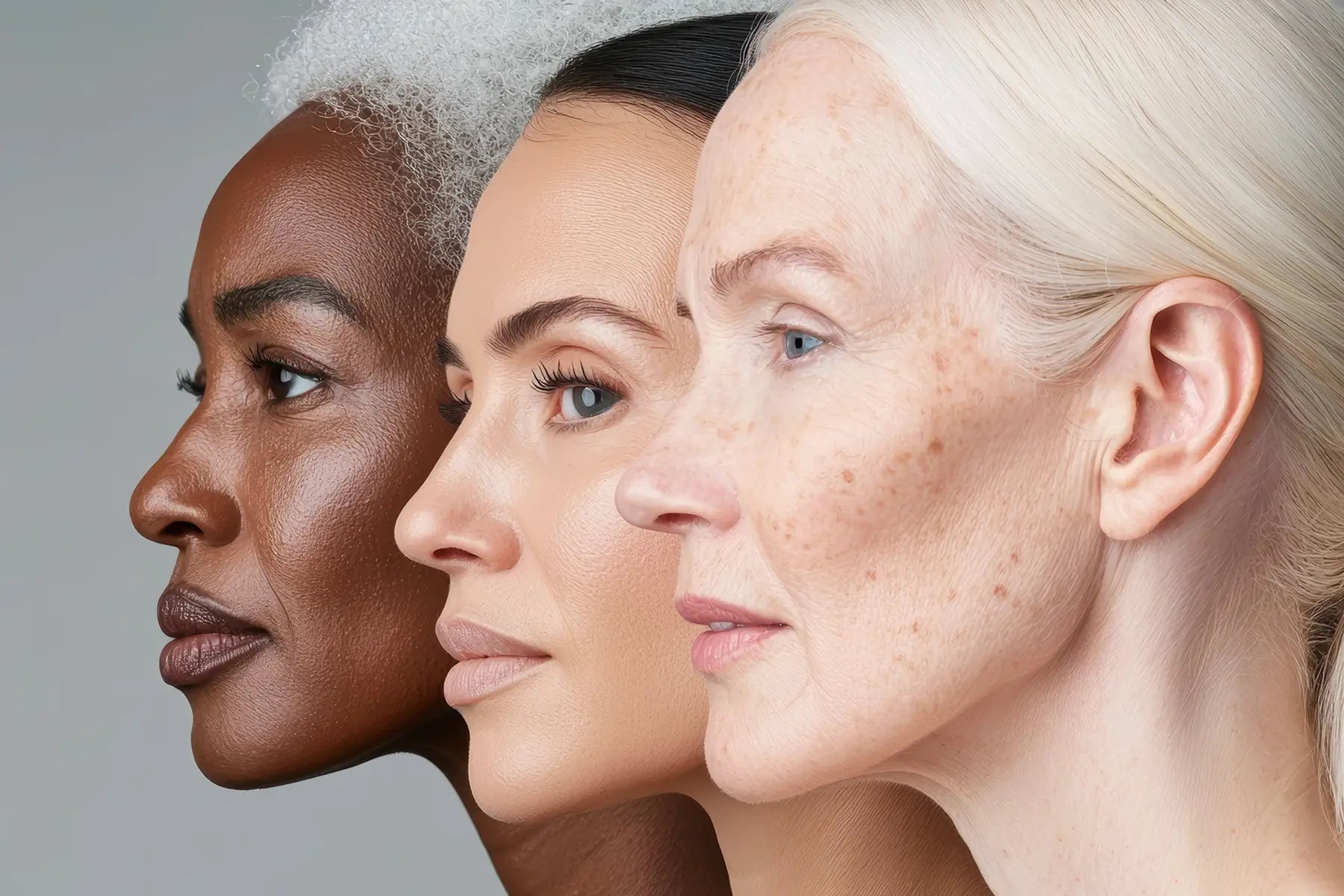Australia typically experiences lower UV rays in winter compared to summer. However, due to environmental factors, this difference may be shrinking. Regardless of the UV index, it's crucial to wear sunscreen every day. Sun protection is essential for your health, even on cooler winter days.
–––––––––––––
Let's face it, the idea of slathering on sunscreen in the middle of winter can feel a bit counterintuitive. We bundle up in layers, crave hot drinks, and the sun seems a distant, hazy memory. But here's a shocker for our sun-drenched Aussie selves: winter can actually be a time of higher UV radiation. Yep, you read that right.
With that mind-blowing fact in mind, the team at Austin Skin invites you to ditch the misconception and grab the sunscreen because protecting your skin is a year-round mission.
Understanding UV Radiation
Before we delve into the problems caused by winter's sneaky UV punch, let's understand the culprit itself – ultraviolet (UV) radiation. UV rays come from the sun and are invisible to the naked eye. They come in three main types: UVA, UVB, and UVC.
While UVC rays are thankfully absorbed by the Earth's atmosphere, UVA and UVB can reach our skin, causing sunburn, premature ageing, and even skin cancer. The sunscreens offered by Austin Skin protect you from these ageing rays and keep your skin looking youthful and fresh.
Why We Feel Safe (But Aren't)
Winter's cooler temperatures and shorter days create an illusion of safety. We're less likely to feel the sun's warmth, so we let our guard down. But remember, UV radiation is invisible and doesn't depend on temperature. You can get a serious sunburn on a cool, cloudy winter day, and the damage can be cumulative, increasing your risk of skin cancer later in life.
So, what is responsible for the unexpectedly higher UV risk in winter? It all boils down to a surprising combination of factors:
- Thinner Ozone Layer: The ozone layer is a vital shield in the atmosphere that absorbs most of the harmful UV radiation. However, it fluctuates throughout the year, and in winter, it can be thinner over certain parts of Australia, allowing more UV rays to reach the ground.
- Reflective Surfaces: Winter brings snow to some parts of Australia, and snow is a champion at reflecting UV rays. Think of it as a giant mirror bouncing extra UV radiation your way, especially if you're enjoying winter sports like skiing or snowboarding.
Sunscreen: Your Year-Round Superhero
Yes, winter is here, but that doesn’t mean you can ditch the sunscreen you used this summer. Here's why:
- Sunscreens Block UVA and UVB Rays: Look for a broad-spectrum sunscreen with an SPF of 30 or higher to protect against both UVA and UVB rays. SPF 30 blocks 97% of UVB rays, while SPF 50 blocks 98%.
- Sunscreens Prevent Skin Damage: Sunburn is not just a summer woe – it's a sign of skin damage. Sunscreen helps prevent this, allowing you to enjoy the outdoors safely.
- Sunscreens Reduce Skin Cancer Risk: Regular sunscreen use can significantly reduce your risk of developing skin cancer, the most common cancer in Australia.
Your 10-Point Sun Safety Checklist:
Make sun protection a daily habit, regardless of the season or the number of clouds in the sky. The best tips Austin Skin have to offer include:
- Don’t Skimp: Apply liberally 20 minutes before going outside.
- Don't Forget Hidden Spots: Ears, neck, lips, and the tops of your feet are often neglected. Don't let them become sunburn victims!
- Reapply Often: Reapply sunscreen every two hours, or more often if you're sweating or swimming
- Seek Shade: Especially during peak UV hours (10 am–4 pm), seek shade whenever possible
- Sun-protective Clothing: Don't underestimate the power of a hat, sunglasses, and long-sleeved clothing.
- Check the UV Index: The Bureau of Meteorology provides a daily UV index forecast. Plan your outdoor activities accordingly.
- Don't Rely on Clouds: UV rays can penetrate clouds, so don't let a cloudy day fool you into skipping sunscreen.
- Label Check: Always check the expiry date on your sunscreen and replace it once expired.
- Sensitive Skin? Opt for a broad-spectrum sunscreen labelled fragrance-free or sensitive skin.
- Hydrate: Sun exposure can dehydrate your skin. Drink plenty of water throughout the day.
It can be easier than you might imagine to give your skin a healthy glow and protect it from sun damage.

